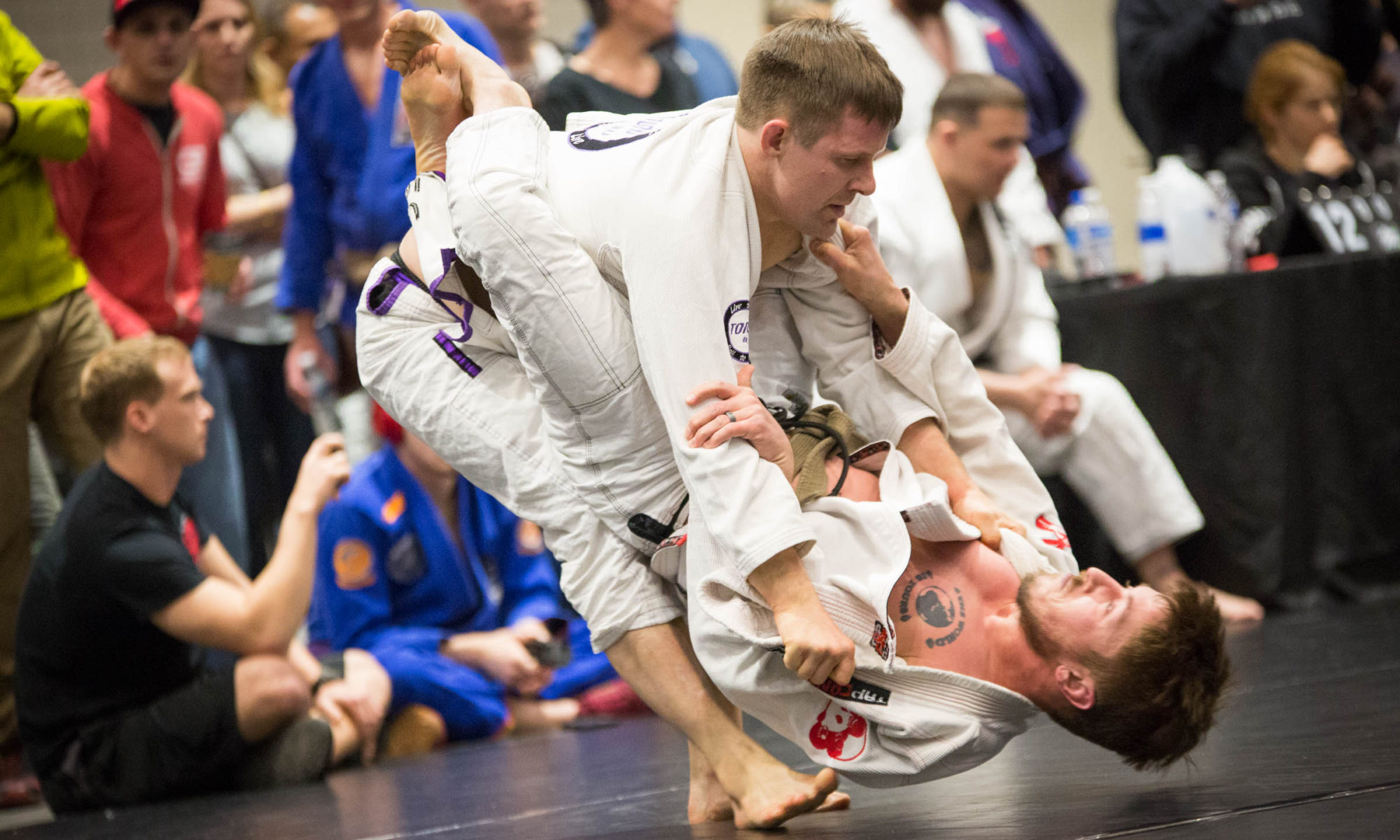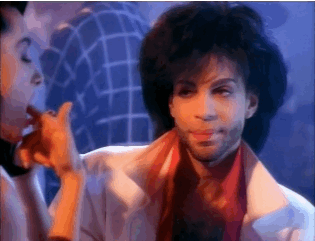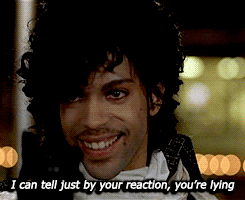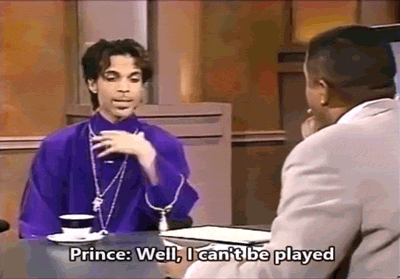… my reaction, in five Prince GIFs.
Toro Cup 6 Preview: In Threes
This weekend marks the sixth version of Toro BJJ‘s Toro Cup series, a card of gi and nogi jiujitsu matches that showcases local talent and raises money for worthy causes.
We’re a proud sponsor of this event, and because — as De La Soul taught us — three is the magic number, we’re going to give you a preview of the event in bite-sized chunks of three.
WHAT: Toro Cup 6
WHEN: Feb. 11, starting at 11 a.m.
WHERE: Triangle Jiu-Jitsu/Cageside Fight Co., 124 Latta Road, Durham NC.
THREE REASONS YOU NEED TO GO TO TORO CUP 6
The Matches: More matches than ever (22 as of this writing), featuring athletes representing more than 30 schools. This is real growth, and the chance to watch old favorites as well as lesser-known and rising athletes. I get around a fair bit, and there are several athletes on this card I haven’t seen compete. That’s exciting.
The Cause: Toro Cup always picks a charity, and Gis for GIs is the first second-time recipient. A great cause that helps provide active duty military and veterans with jiujitsu gear, the charity makes a tangible difference in peoples’ lives.
The Community: Every one of these events is bigger than the last, and it’s a great melting pot for local grapplers. Plus, there’s always great food. Adobo Joe Filipino Food Truck and Yellow Bear Bakery will both be back for your weight-missing needs. Continue reading “Toro Cup 6 Preview: In Threes”
Why sleep is necessary for jiu-jitsu and life
If you come to my 6:30 a.m. class tomorrow, I hope you forget a bunch of what I said by Wednesday morning.
Why would I say this? Because I assume you will sleep between 6:30 a.m. Tuesday and Wednesday morning.
It’s no secret that sleep is important for health and fitness. Lack of sleep correlates with increased obesity risk, poor cognitive function, disrupted immune systems and more. If you don’t get sleep, you will legitimately go crazy.
We’ve long known that sleep matters: now, new evidence is telling us why. Sleep plays a key role in forgetting. And that plays a key role in learning. Continue reading “Why sleep is necessary for jiu-jitsu and life”
GUEST POST: To the Girl Who Thinks She Can’t Do It
Editor’s Note: We run occasional guest posts from members of the jiu-jitsu community, and would love to run more. If you would like to submit one, please e-mail us. This is one we received from a competitive blue belt in North Carolina, in “open letter” format. We liked it a lot and hope you do, too.
To the girl who thinks she can’t do it:
As I look back over the past 2 years of my life, I am almost unable to fathom how much everything has changed.
Two years ago, I was sitting in the breakroom at work talking to an old friend, when he broke the news. I found out the guy – that just a year earlier I thought I was going to marry – just became a father. He was starting a family, a life, and I was just sitting in the breakroom. Granted, I didn’t want to be a mother at 23, but this news hit me like a ton of bricks. (I now know that no one has their life together at 23, but at the time it felt like my world was falling apart).
The situation slowly sunk in and weighed heavy on me.
What the hell am I doing? Continue reading “GUEST POST: To the Girl Who Thinks She Can’t Do It”
Meryl Streep, MMA and Empathy
Have you ever wanted to understand another person so much that you sacrifice elements of your own life that make you happiest? I’m not talking about making sacrifices to help another person — just to understand them, to deeply comprehend where they are coming from. What they love. What they want. What they fear.
That’s what actors do. When he was filming Taxi Driver, Robert de Niro got his New York cabbie license. He worked 12 hour shifts driving a cab to prepare for the role, and — legend says — used to pick up fares during breaks from filming. While shooting One Flew Over the Cuckoo’s Nest, Jack Nicholson and some of his fellow cast members would spend the night at the psychiatric hospital. We all have some baseline human empathy, but to truly understand someone in a way that allows you to pretend convincingly to be that person — well, that’s impressive. I see what makes it worth doing, but I don’t understand the process.
Which brings me to one of the best actors ever: Meryl Streep. Yesterday, during the course of a far longer talk at the Golden Globes, Streep threw off some asinine remarks about mixed martial arts. She was wrong, of course, and it was an unforced error — one stupid sentence set off from a broader speech, but one that happened to insult a passionate (if niche) community. Two great pieces have already been published about this: Chris Zahar’s Jiu-Jitsu Times article explains what Streep got wrong, while the inimitable Jack Slack presents a vigorous and devastatingly argued defense of MMA as art. Those pieces are both spot-on. I don’t want to revisit that ground, so let me focus on one aspect of this mess: ignorance.
That’s what led Streep into this morass. We can say with near-100 percent certainty that Meryl Streep has no idea we’re even upset. If she did, she probably wouldn’t know why. Being ignorant doesn’t mean you’re stupid. It means you’re simply unaware of the realities of life as other people live it. That’s the source of so many human problems, it’s hard to list them all.
PODCAST: Ask a Random Purple Belt
The first show of the new year is a Q&A extravaganza! From the shores of Vancouver Island and the Halls of Snowpocalypse, we bring you an episode of “Ask A Random Purple Belt.” There are four question-and-answer segments about jiujitsu etiquette:
1. Kneez Nutz: How do you respond when you’ve accidentally kneed a training partner in the twig and berries?
2. Wash Your Butt: What are best practices for gym cleanliness and personal grooming?
3. “Rank” Means Something Stinks: How should new people think about belts and stripes when training?
4. Fluid Like a Druid: What do I do if I cry or bleed on the mat?
Think we got something right? Something wrong? Left something out? Got a question for a future episode? Post it here or leave us a voicemail at (360) 389-2830. Also, check out our interactive calendar featuring upcoming tournaments, seminars, MMA fights, and open mats. Submit your own!
(We also learned a bunch about mic echo at the kitchen table — you can really notice the sound quality difference when recording outdoors! Next time we’re trapped by snow we’ll have a real home podcast studio set up.)
They’re All About Duty
Note: This is a guest post I did for JiuJiteira, a new online community intended to promote events that feature female JiuJiteiras and encourage both men and women training together.
Jiujitsu has much in common with musical theater, specifically Gilbert & Sullivan.
No, really. Besides being subcultures that inspire completists to obsession, the themes in both essentially run parallel to each other.
If you want pop culture confirmation, consider this clip from the West Wing, where Ainsley Hayes corrects Lionel Tribbey on whether the song “He Is An Englishman” comes from “HMS Pinafore,” which it does. Tribbey insists that it is from Penzance, or Iolanthe, or “one of the ones about duty.”
Ainsley responds, correctly: they’re all about duty.
If you’ve seen any Gilbert & Sullivan — and really, who hasn’t? — you can testify that this is accurate. In song and story, the Englishmen sailing the ocean blue struggle with what’s right to do. Michael Bisping might represent all that’s bad about the English aesthetic, but “Pinafore” represents all that’s good about it.
We hear a lot about duty in the martial arts. Qualities like loyalty and courage in the face of adversity are embedded in the Bushido code and what traditionalists refer to as jiujitsu philosophy.
But what’s duty? What do we owe other people? The German philosopher Immanuel Kant was perhaps more concerned with moral duty than anyone else, and he came up what called the Categorical Imperative — a single rule more important than any other.
What is this rule, and what does this have to do with how we train? We’ll get to that in a second. If you don’t care about the echoes of German philosophy in martial arts, you might be interested in Sideshow Bob singing the score of Pinafore before trying, fruitlessly once again, to murder Bart Simpson:
The rule Kant came up with — that most important of imperatives — is: “Act only on those maxims (or rules of action) that you could at the same time will to be a universal law.” Or, put more simply, only do things that you’d be comfortable with anyone else doing, at any place and time.
That might sound familiar, like it’s a more detailed version of a rule common throughout the world’s religions and cultures. It also might sound like a good idea, and it is. The trouble isn’t the rule, the trouble is that people aren’t always attentive to it, or don’t apply it to their specific life circumstances.
Let’s apply it to our specific life circumstances. What do we owe to our training partners? What is our duty to them? I came up with three principles.
- The most important person in the room is your training partner.
Your training partner – even if they’re the newest white belt – is doing you a favor. They’re putting their body on the line and using precious minutes of their finite life to help you get better at something you love.Let’s say we look at every training situation, in jiujitsu and out, this way: a mutual exchange where we’re investing time in helping each other. If you’re looking at making universal rules for how people in that situation should treat each other, you’d probably say they should treat each other like gold. This is particularly true in something like jiujitsu, a niche activity where mistakes can have physical consequences.
Sometimes I hear people complain about training with white belts. I love training with white belts, because making sure white belts have good experiences is the best way to grow jiujitsu. And I learn things every time: new people often react differently than experienced people, which improves my ability to respond in those situations. Even when there is a skill gap between training partners, we can still learn from each other.
The person you’re drilling with and sparring with is the most important person in the room at that moment. Your responsibility – your duty – is to make sure they have a good experience and get something out of it.
- Everybody has a first day. It’s your job to make sure they have a second day, too.
Duty means that we should always make choices that could be universalized – that is, we would be comfortable with everyone making the same choices we made.Imagine a new person comes in that rubs you the wrong way for whatever reason. Let’s say you act like a dismissive jerk: maybe you ignore them when it’s time to pair up and drill. Or worse, let’s say you encourage them to spar with you, and you smash their face for five minutes.
If that choice is universalized – if everyone makes that choice – jiujitsu dies. Period.
Jiujitsu is hard, and we shouldn’t shy away from making that clear. When I talk to the toughest of the toughest, oldest of old school folks, though, there’s a common undercurrent in what they tell me: training has to be fun sometimes, too. To help jiujitsu grow and survive, let’s not show new people the first part without the second.
- The more vulnerable someone is, the more attentive you should be to your own actions around them.
Fundamentally, I believe in personal responsibility. We are a product of the choices we make.We often hear that jiujitsu is for smaller, weaker people. Helio Gracie said that larger, strong people already have nature’s jiujitsu. We all know people who have tremendous jiujitsu skills that would have developed those skills no matter what gym they ended up at — people who are naturally tough and physically adept.
I am not one of these people.
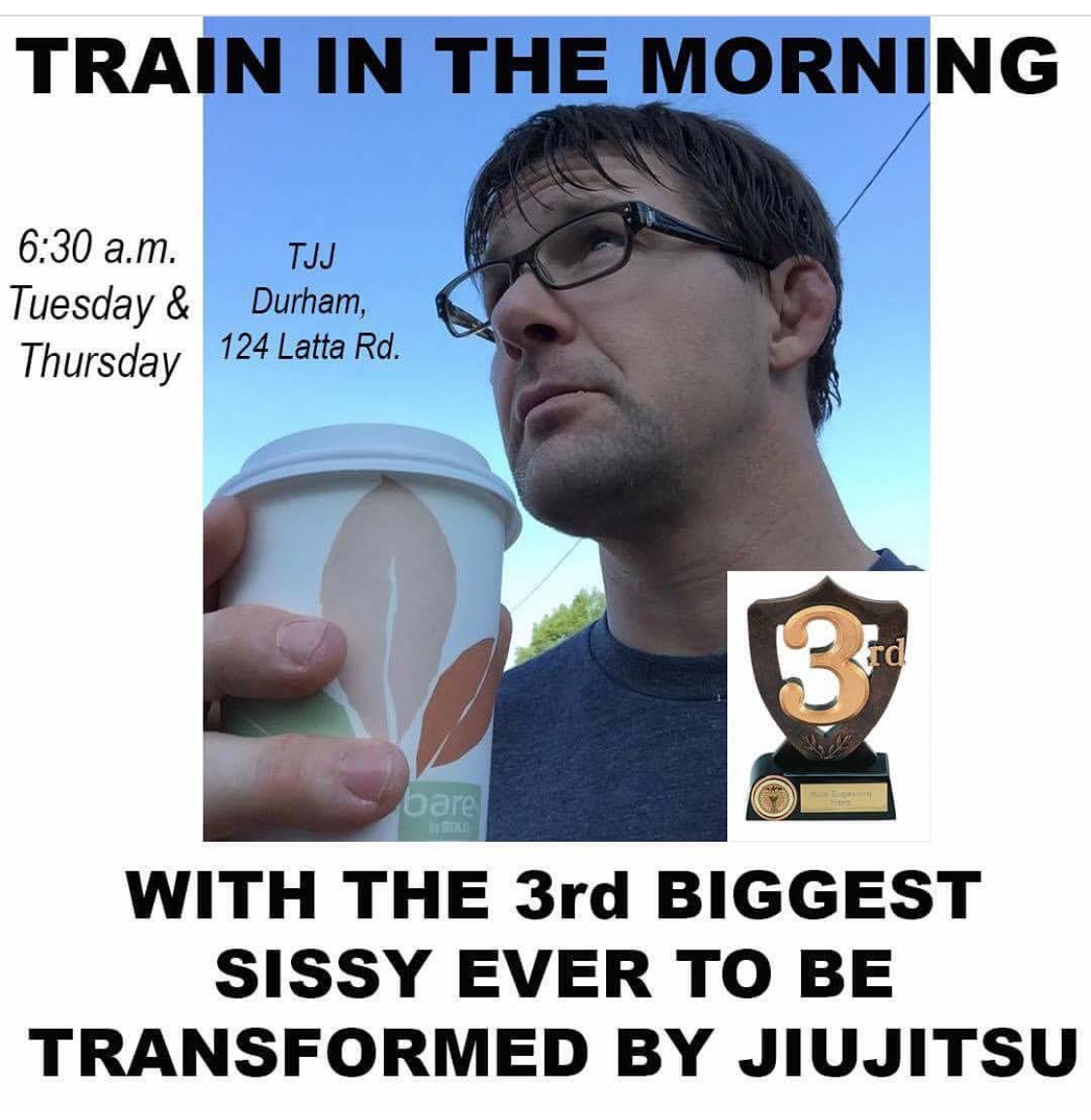
I lucked out by walking into a gym that is very thoughtful about how to build people up. If that hadn’t happened, I might not have the chance to even do jiujitsu, let alone have it as a central, rewarding part of my life.
Since I am, by any reasonable metric, a very lucky person, I think a lot about what I owe. What I owe people, what I owe the world. Since there were people that kept me coming back, I want to be one of those people for somebody else.
When people come into the gym that might not feel welcome for any reason – maybe they aren’t natural athletes, maybe they’re women who are worried about training with men, or maybe they struggle with claustrophobia, or are physically disabled in some way — I feel like it’s incumbent on me to make sure they see the possibilities that jiujitsu can represent for them.
Some things are universal. We all want to be treated with dignity and respect. We all want to train in place with people who are true and attentive. We are, all of us who train, a part of the same story.
So, yes, this is something that jiujitsu and philosophy and musical theater share in common.
They’re all about duty. And if we’re decent, so are we.
Introducing Dirty White Belt Radio
More a little more than a year, I’ve been doing a podcast. We’ve made 58 shows. Learned a lot. Made more than 60 videos about technique, nutrition, live event coverage and funny things. Plus, the occasional webcomic.
It’s been an amazing year. Now it’s time to take it to the next level — which means a couple of big changes.
First, the name of the show is changing. The show was called the Cageside ConcussionCast, but we wanted a name that’s going to reflect our focus on Brazilian jiu-jitsu, and more broadly the healthy lifestyle associated with jiu-jitsu. The new name of the show will be Dirty White Belt Radio — after this blog. 
(You can also call us “The Artist Formerly Known as The Cageside ConcussionCast” if you want.)
Regular readers might know that the idea behind the “Dirty White Belt” name is this: as my belt gets darker, I always want to retain the white belt attitude of consistently learning. I want to learn forever, and this project is a way to stay on that journey with my fellow travelers.
But that’s not the only big change.
We’re creating a new website which will launch at DirtyWhiteBelt.com that will house ALL the content we produce — podcasts, blog posts, video instructionals about jiu-jitsu, food and nutrition, webcomics, and a unified events calendar for seminars, tournaments, superfight events and MMA fights throughout the Southeast. We’ll also have ways you can support the charities we back, as well as ways to support other local North Carolina brands. Right now, that URL just points at this blog, but that’s going to change soon.
We want you to expect more from us. We’re still going to have the content you’ve come to expect — just more of it and a better version. We’ll always focus locally on jiujitsu and other fighting arts in the Carolinas and beyond, but now we’re going to be bringing in more big, national guests, especially guests with historical significance. (We already have some interviews recorded that I can’t wait to share with you). We’re also going to produce more regular bonus content to go along with the podcast — things like videos and comics.
All of this will be housed at the (currently under construction) dirtywhitebelt.com. We hope to launch the website on Jan. 1, to start next year. And we had so much fun at the ConcussionCast Carnival last year, we hope to do another live event in 2017!
In the meantime, we’re going to slowly transition everything under the Dirty White Belt label. We’re also going to be able to sell advertising, so … if you’re a jiujitsu brand that wants to reach a passionate, smart and good-looking audience, boy do we have that. (Thumbs up, cheap pop).
What does this mean for you, the listener and supporter? Not much, I don’t think. Now begins the process of transitioning to the new name on iTunes, Stitcher, Soundcloud, and our various social media channels. If you already subscribe to us in one or more of those places, you shouldn’t need to do anything else — and if you don’t subscribe already, please do. And be aware that when you see something from “Dirty White Belt,” that’s us.
Our goals remain the same: to shine a light on all the fantastic things happening in our local scene, and to talk to the great people making them happen; to bring you the best possible interviews with both local folks and legends of the fighting arts; and to spread the word about jiujitsu to everyone who needs to hear it. And everyone needs to hear it.
Thanks for listening, and for hanging with us through this exciting transition!
15 Quotes From Moby Dick That Are Actually About Jiujitsu
I first read Moby Dick at a young age, too many years ago to admit. I first realized that the book is actually about jiu-jitsu just this week.
Herman Melville’s opus chronicles a titanic struggle between an otherworldly whale and his human arch-nemesis. Although ultimately the whale teaches Ahab to laugh and love again through the healing power of sea chanties — sorry for the spoilers — the novel is really about obsession.
The most powerful passages from what is, to me, the most American of novels, hit on these themes: there is power in passion and commitment, but also danger; the beautiful corners of life can also be terrible, and that terror has substantial interplay with the beauty; and finally, we’re drawn as human beings to perilous pursuits, but there is peril in ignorance and comfort as well.
Moby Dick is about a subculture of diverse, intrepid people who share an extreme life experience that only a small fraction of human beings ever will. Their journeys take them spectacular places, far out of each individual’s comfort zone, and are marked by the knowledge that nothing really serves as a substitute. Like I said: it’s about jiu-jitsu.
If this makes sense to you, you’re probably a nerd. If this really makes sense to you, you’re a nerd who trains. Either way, you’re in the right place.
I could’ve easily picked the top 100 passages from Moby Dick that speak to the jiujitsu lifestyle. Upon the advice of my attorney and life coach (a 10-year-old hound dog named Penny), I’ve whittled it down to 15. Here goes:
1. “…the great floodgates of the wonder-world swung open…”
The narrator of Moby Dick, who goes by the name Ishmael, speaks with awe and wonder of being at sea, using this phrase to describe his perception.
Remember the first time you hit a move cleanly on someone who was trying with all their might to stop you? Or: remember the moment when you first chained two or three moves together? For me, executing my first scissor sweep was like watching an angel came down from heaven and play the entirety of Led Zeppelin IV.
When you’re in the flow, the whole glorious world of possibility opens. This is what it’s like when Ishmael goes to sea, or when many of us hit the mats. We open the great floodgates of the wonder-world.
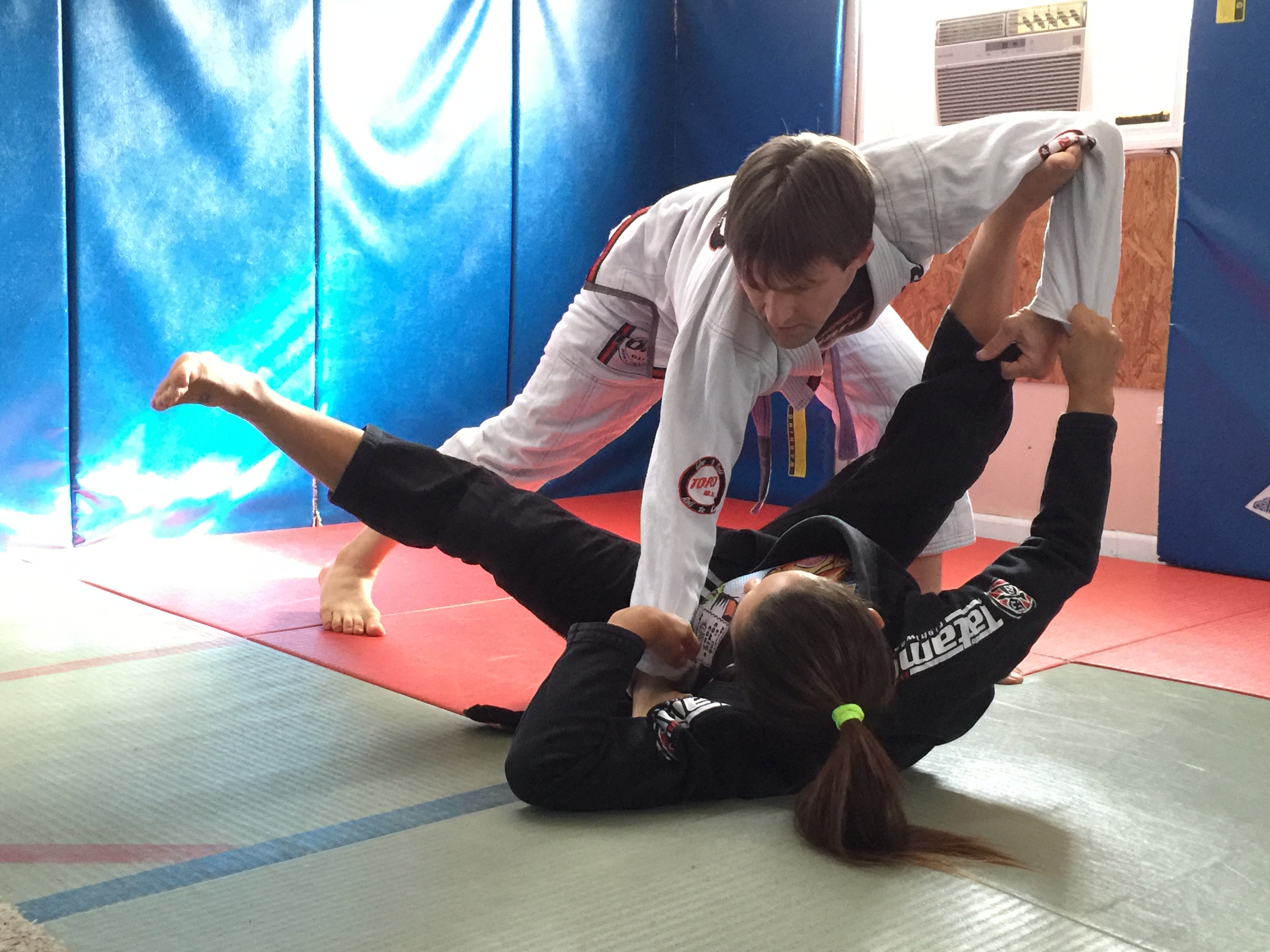
2. “…to the last I grapple with thee; from hell’s heart I stab at thee; for hate’s sake I spit my last breath at thee.”
The most rhetorically powerful speech of the book is also its most direct reference to grappling. These climactic epithets Ahab shrieks at Moby Dick always fire me up — and make me think of those gnarly death rolls in the final round of a tournament.
Ahab could really cut a promo, even on a marine mammal. I think more people would love Moby Dick if they produced a version that included just his venomous speeches. I mean, just read that passage again: it’s as if the Spartans at Thermopylae had a speechwriter that wrote for an academic version of Ric Flair. If they boiled down Moby Dick to these speeches, it’d be like Thomas Jefferson’s version of the Bible: lean and mean.
3. “It is not down on any map; true places never are.”
The cannibal moral center of the novel, Queequeg, is a native of Rokovoko, “an island far away to the West and South.” But you can’t find it. Because it’s not on the map.
https://upload.wikimedia.org/wikipedia/commons/thumb/f/f7/Queequeg.JPG/220px-Queequeg.JPG
Speaking of jiujitsu is a journey is common — because it is. Your instructor might show you a move, or teach you a concept. It’s up to you to perfect that move for you, or internalize that concept. That takes time, and effort, and commitment.
It also takes faith. If your instructor could tell you “do these three things, and you’ll be an expert at guard passing,” it would make life a lot simpler. But no honest instructor would do that. You’ve got to pursue that yourself, trusting that walking the path the right way will ultimately lead you to the destination.
Jiujitsu is the truth. That’s why there’s no roadmap.
4. “Whenever I find myself growing grim about the mouth; whenever it is a damp, drizzly November in my soul; whenever I find myself involuntarily pausing before coffin warehouses, and bringing up the rear of every funeral I meet; and especially whenever my hypos get such an upper hand of me, that it requires a strong moral principle to prevent me from deliberately stepping into the street, and methodically knocking people’s hats off – then, I account it high time to get to sea as soon as I can.”
This is Ishmael describing in vivid detail how turbulent his life would get between trips to sea. In the book, the sea provided a release valve for all that pent-up aggression.
One of my friends used to get into a lot of street fights. He’s trained in several martial arts, fought, competed, and generally run the gamut of training options. Once he told me that jiujitsu in the gi is the only art that ever made him a better person.
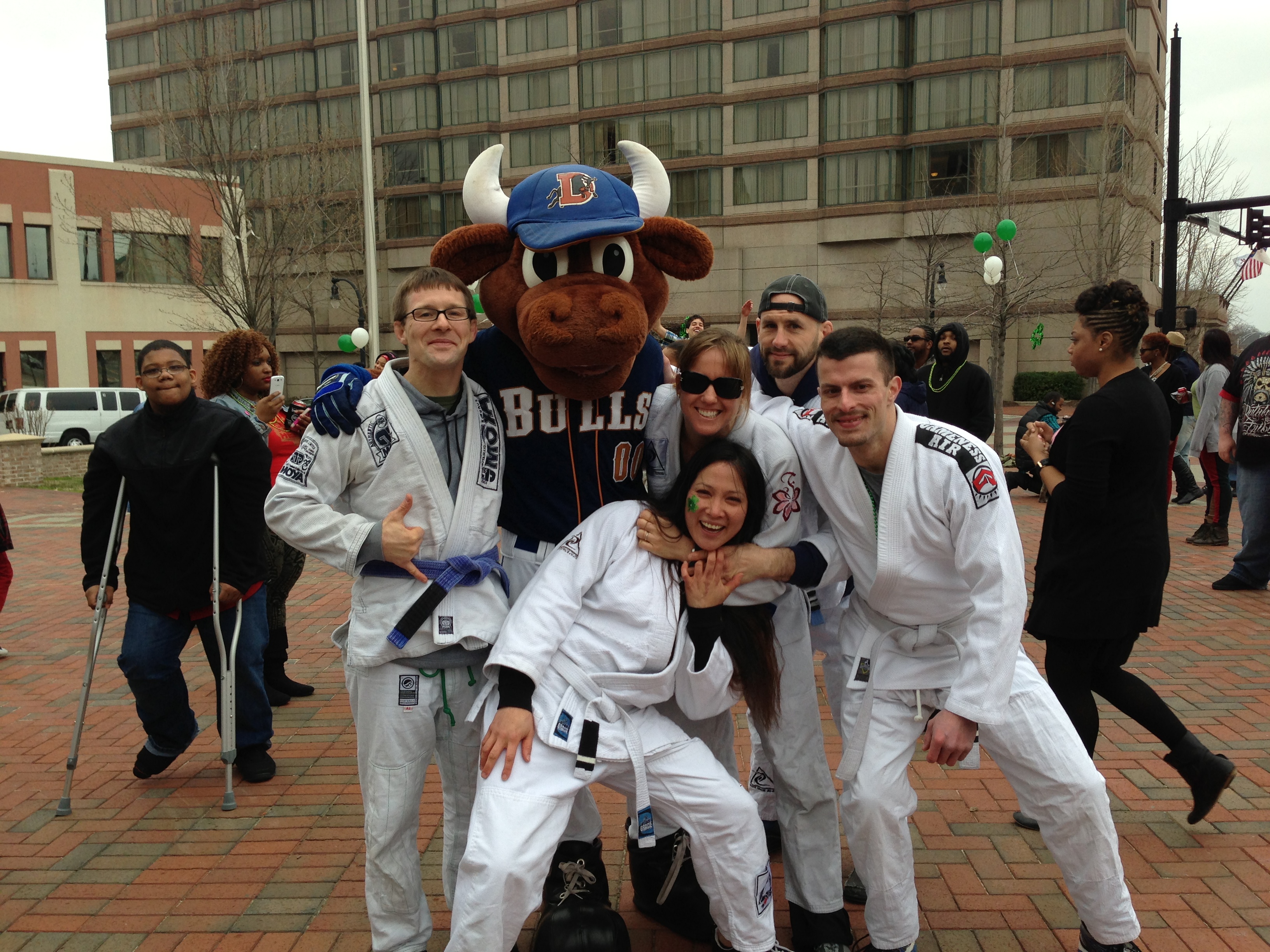
We all know people who can only simmer down their blood by training. If you’re reading this, you can probably name a dozen people who are sanest and calmest immediately after class.
Maybe you’re one of those people. I am.
5. “There are certain queer times and occasions in this strange mixed affair we call life when a man takes this whole universe for a vast practical joke, though the wit thereof he but dimly discerns, and more than suspects that the joke is at nobody’s expense but his own.”
Sometimes in class, you’re a step late to every move. Sometimes the people you usually submit get away, the people you usually dominate positionally give you hell, and the people who usually whoop up on you lay the smack down even worse than normal.
Sometimes a meme of you getting choked ends up everywhere on the Internet. Life is funny!
https://s-media-cache-ak0.pinimg.com/736x/de/d9/06/ded906383160a88c3e947d620e1923ca.jpg
6. “I try all things, I achieve what I can.”
One of many “words to live by” lines in the book comes from the maybe-unreliable narrator, Ishmael. When he tries to describe the whale, he confesses it’s not his area of expertise, but he’ll give it a shot.
You have to do this in jiujitsu: you might know you can’t pass your instructor’s guard, but try. Fail. Fail again. Fail better. Try everything. Achieve what you can.
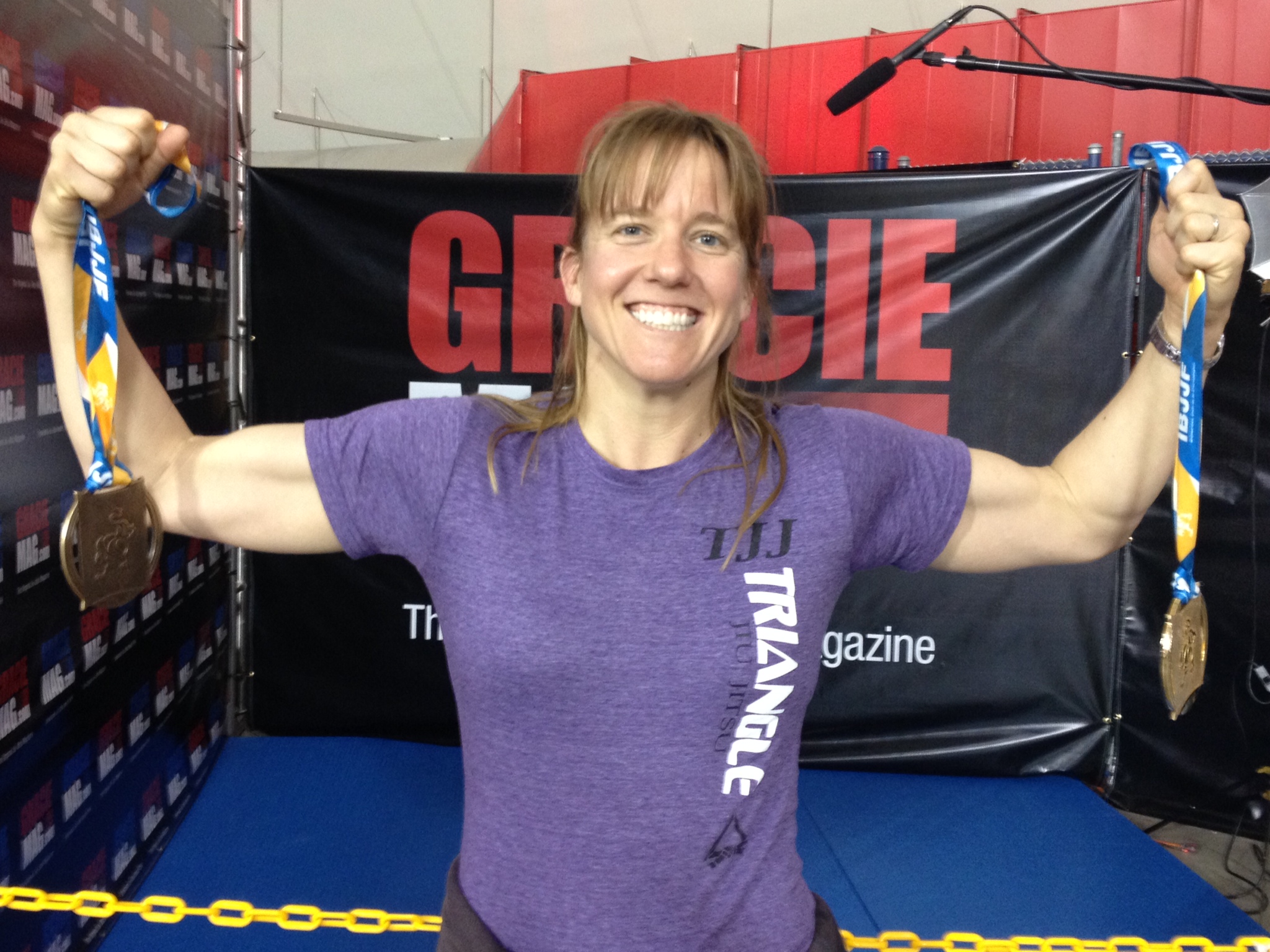
7. “There is a wisdom that is woe; but there is a woe that is madness.”
Ishmael says this after he’s been staring into a fire, reaching a near hypnotic state.
The reality is this: sometimes, you should feel bad. Ego isn’t always the enemy, and disappointment is a natural fact of jiujitsu life. There is always someone better than you, and sometimes you have a tough day of competition or a night where everything you try gets shut down.
I’m not going to tell you not to feel bad when this happens. Disappointment is the source of strong motivation. There is wisdom in the woe that comes from a bad result.
In Moby Dick, Ishmael acknowledges that people with strong will — those with souls “in the mountains” — can profit from woe and gloom. This is the way we transcend the ordinary. Don’t let it drive you crazy, though, lest you end up on a boat with some nutjob, or in an emo band.
8. “Consider the subtleness of the sea; how its most dreaded creatures glide under water, unapparent for the most part, and treacherously hidden beneath the loveliest tints of azure.
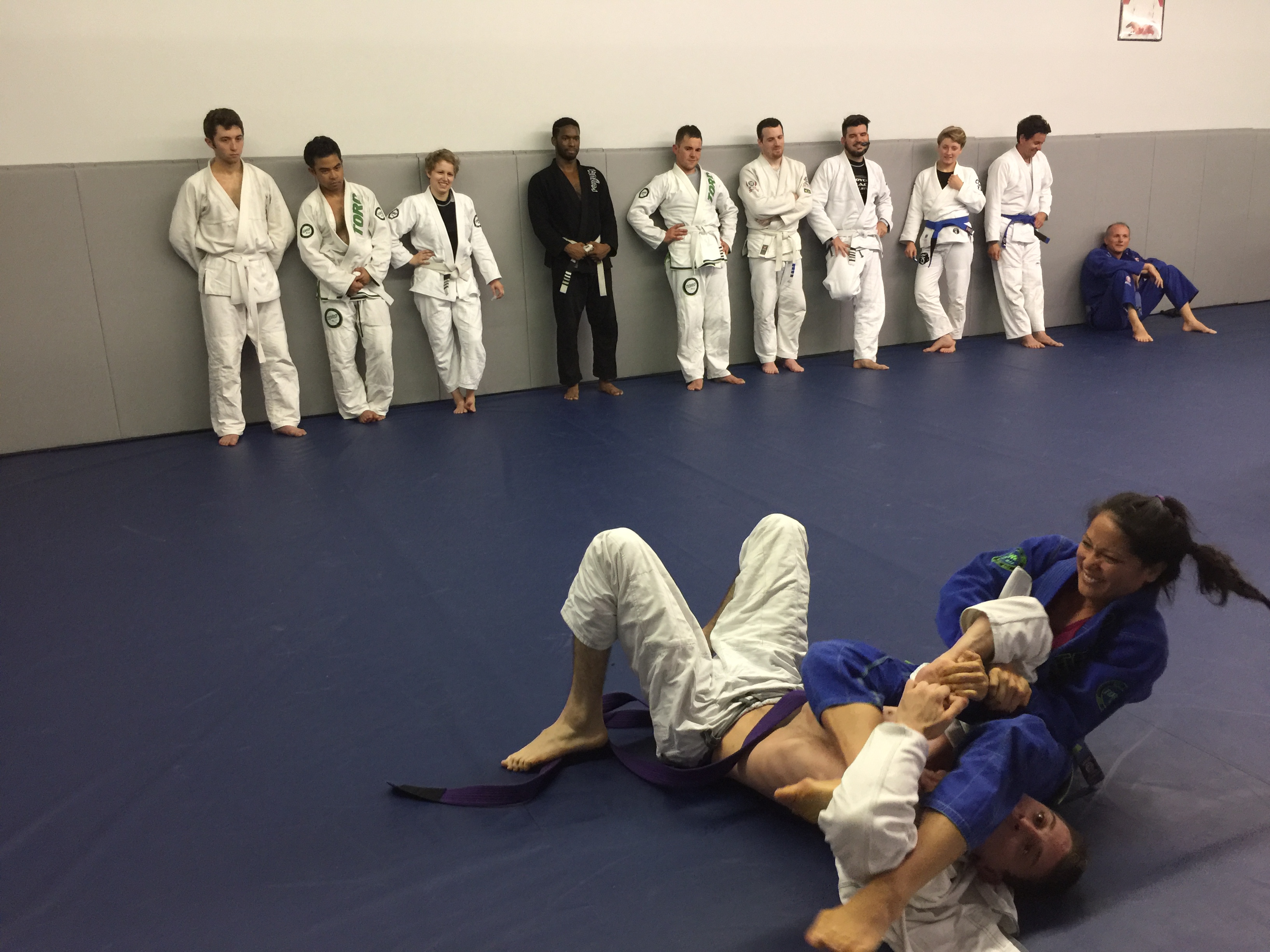
Consider also the devilish brilliance and beauty of many of its most remorseless tribes, as the dainty embellished shape of many species of sharks.”
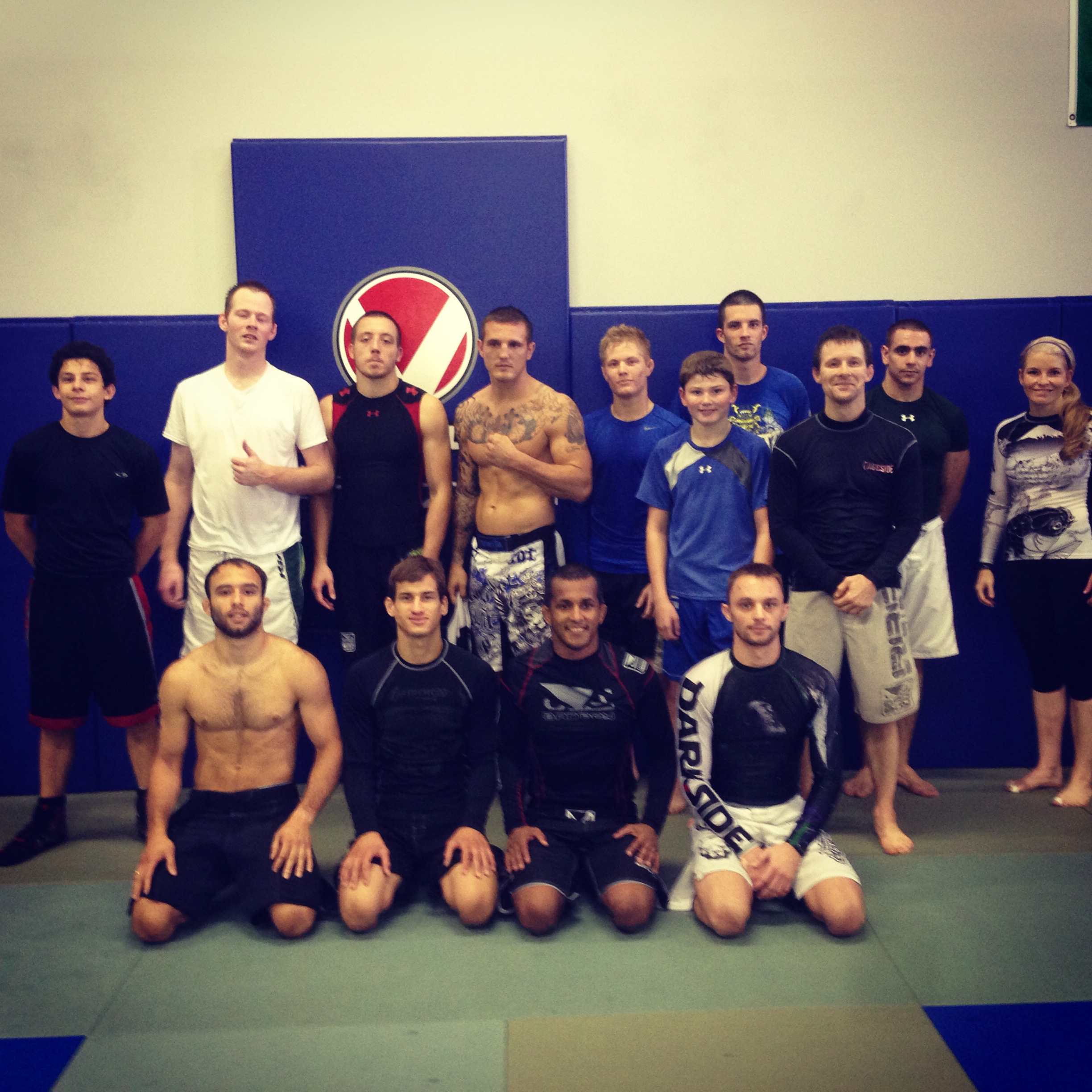
When you walk into a jiu-jitsu gym, you might think you know who the baddest people are just by looking at them. You’re often wrong.
Like the sea under the surface, jiu-jitsu is subtle, and the deadly creatures come in all shapes, sizes, genders and ages. Like the sharks in Moby Dick, the mat animals are treacherously hidden until it’s too late to avoid them.
9. “Ignorance is the parent of fear.”
This is how Ishmael feels about bigotry: that lack of exposure to cultures like Queequegs leads people to make unfounded assumptions, resulting in anxiety — which perpetuates the lack of awareness that leads to fear in the first place.
This is how I feel about leglocks.
10. “Squeeze! Squeeze! Squeeze! all the morning long; I squeezed that sperm till I myself almost melted into it; I squeezed that sperm till a strange sort of insanity came over me, and I found myself unwittingly squeezing my co-labourers’ hands in it, mistaking their hands for the gentle globules.
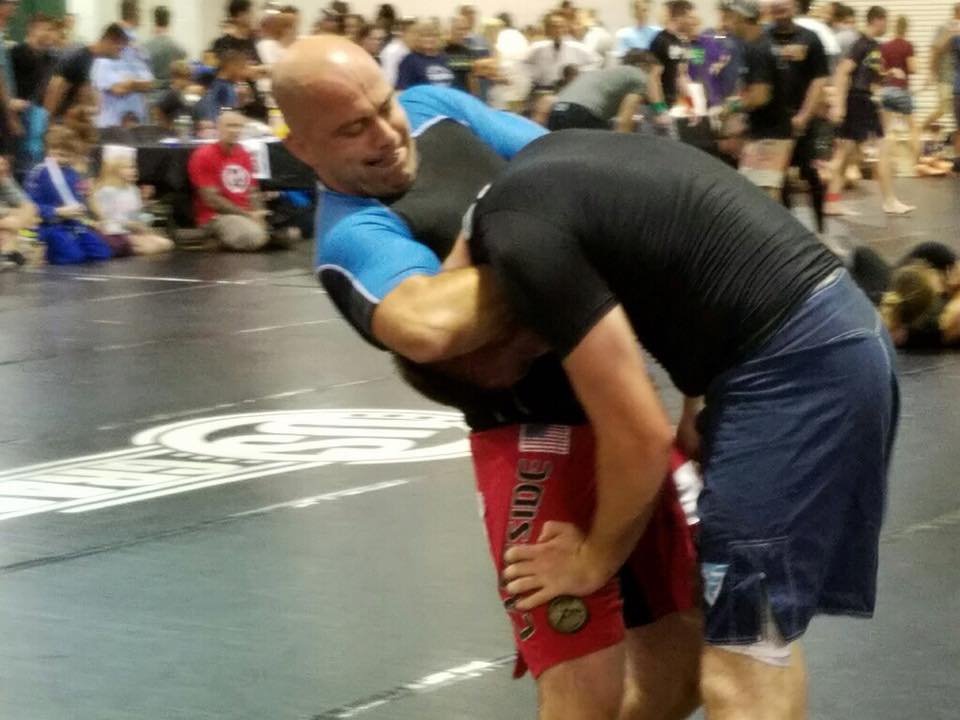
Such an abounding, affectionate, friendly, loving feeling did this avocation beget; that at last I was continually squeezing their hands, and looking up into their eyes sentimentally, as much as to say,—Oh! my dear fellow beings, why should we longer cherish any social acerbities, or know the slightest ill humour or envy! Come; let us squeeze hands all round; nay, let us all squeeze ourselves into each other; let us squeeze ourselves universally into the very milk and sperm of kindness.”
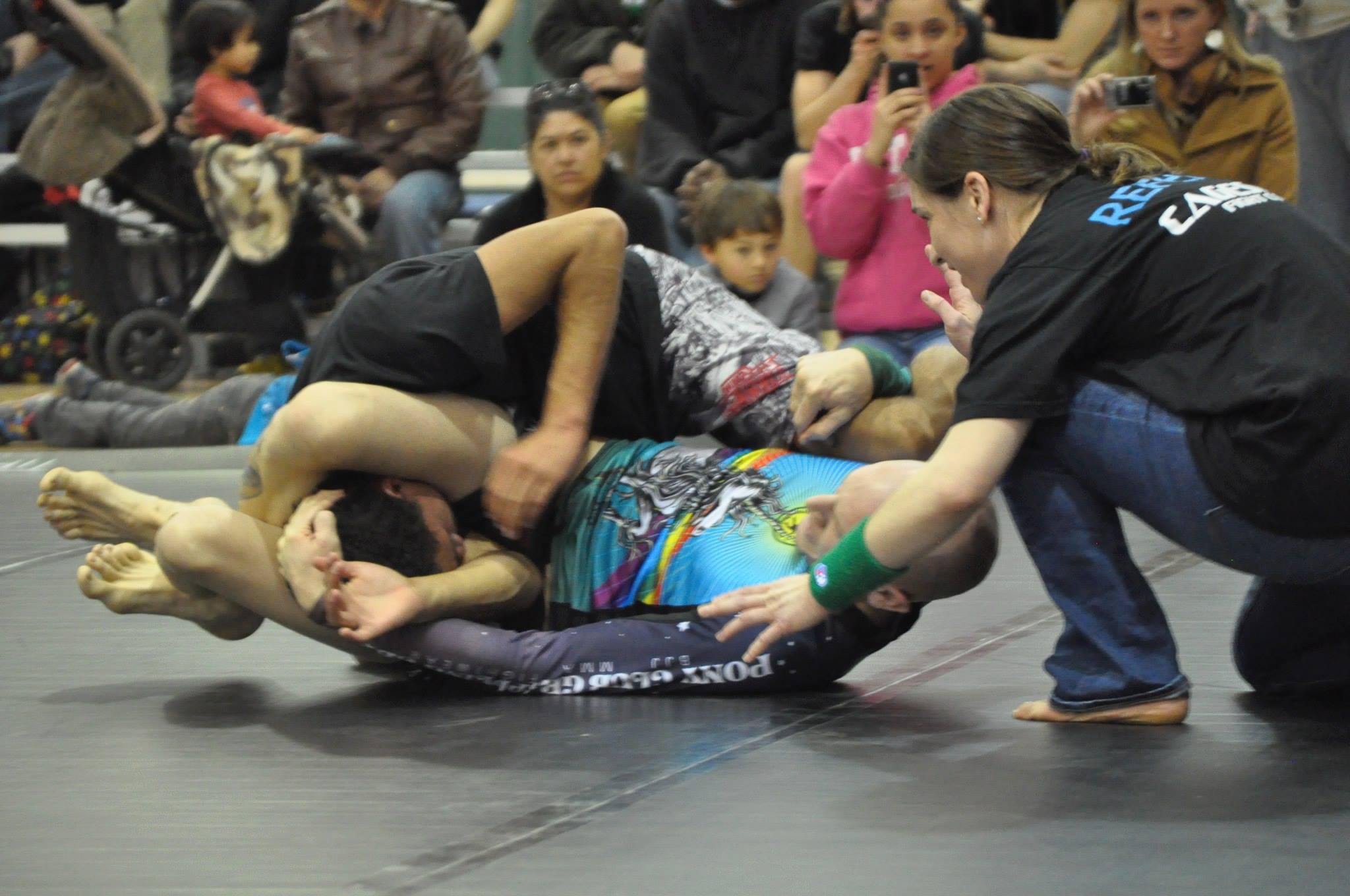
Who doesn’t love a good head squeeze? We squeeze each other’s heads with our arms, we squeeze each other’s necks with our legs. Then, like the sailors on the Pequod, we squeeze hands afterward in a gesture of friendship and comity.
… and in that passage, Ishmael is talking about whalers breaking up the lumpy spermaceti that is found in the whale’s head and sold. What did you think he was talking about?
11. “To enjoy bodily warmth, some small part of you must be cold, for there is no quality in this world that is not what it is merely by contrast. Nothing exists in itself. If you flatter yourself that you are all over comfortable, and have been so a long time, then you cannot be said to be comfortable any more. For this reason a sleeping apartment should never be furnished with a fire, which is one of the luxurious discomforts of the rich. For the height of this sort of deliciousness is to have nothing but the blanket between you and your snugness and the cold of the outer air. Then there you lie like the one warm spark in the heart of an arctic crystal.”
Life is a struggle between hardness and softness. You don’t want to be completely hard, because it stops you from enjoying existence. You don’t want to be completely soft, because you’re unprepared for what life throws at you.
Jiujitsu is fun. Jiujitsu is hard. Hard training necessitates discomfort, which prepares you for other forms of discomfort.
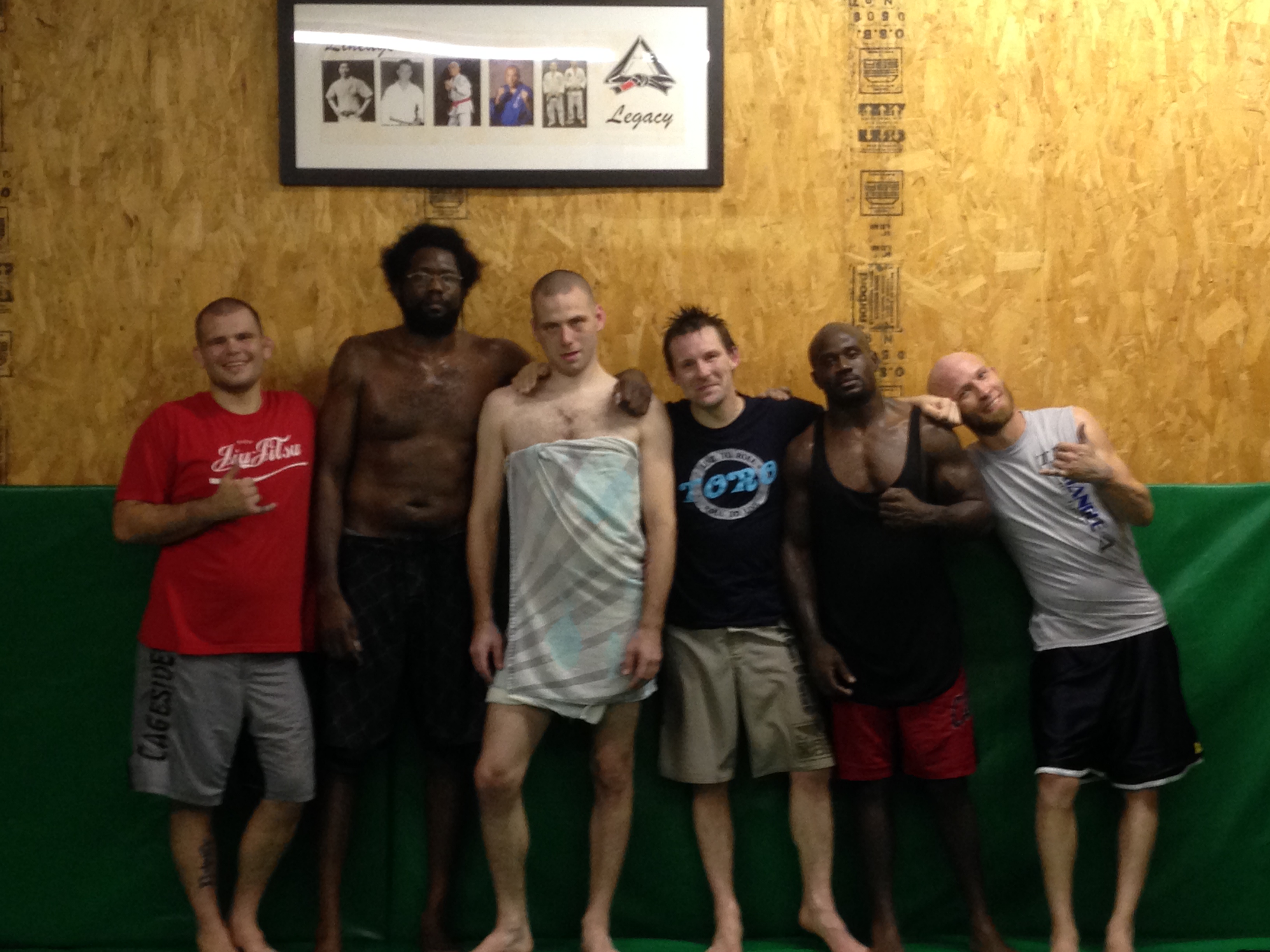
12. “For small erections may be finished by their first architects; grand ones, true ones, ever leave the copestone to posterity. God keep me from ever completing anything. This whole book is but a draught – nay, but the draught of a draught.”
The week Grandmaster Helio Gracie died, he was working on a new choke. Think about that. He’d constructed this art over his whole long life — and was still working on innovations at the end of it.
You’re never done doing jiujitsu. Ever. The power of the art is that you’ll never finish. There is — like the open sea — always more to explore.
This is the source of the blog’s name, too: training jiujitsu means you never stop learning.
13. “I am past scorching; not easily can’st thou scorch a scar.”
Stuff like this happens to you in jiujitsu. Are you really going to be scared of a conversation with your boss after this?
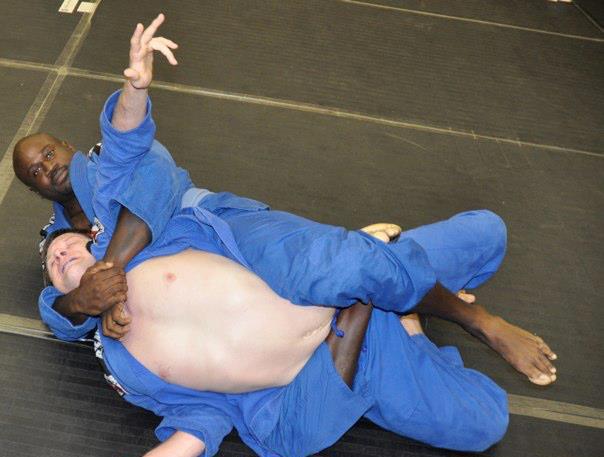
14. “All my means are sane, my motive and my object mad.”
Ahab’s admission of his own lunacy rings true for me. I think meticulously and constantly about the best practices for improving at jiujitsu. I review scientific research about nutrition, body and brain health, and the process by which we learn complex tasks.
I do this so I can take part in things that strike the people who don’t train as, well, nuts.
Once, during a hard session preparing for a friend’s fight, we had five upper belts and one white belt taking part. It was summer in North Carolina and the temperature had cracked 100 degrees with the type of humidity associated with a steam room. The sweat was flowing like water and the action was non-stop. The wet air made it tough to breathe.
The white belt was young and in good shape: at least as good as any of us, and maybe better. But he was struggling, and after each drill or sparring round he’d look around at each of us in disbelief. I wasn’t sure what he was looking for — I was using all my mental resources to follow instructions and not fall apart, in that order — until about 20 minutes into the training.
He walked to the door, and opened it, letting in a fresh burst of air. Then he walked outside and shouted back at us:
“You guys are crazy!” It was clear he was leaving.
Without looking up, all five of us instinctually replied: “See ya.”
We kept training. He shook his head in disbelief and I don’t think I’ve seen him since.
If you want to improve, these are the things you do. It’s the correct means to a mad end. Here’s the thing: no one who doesn’t train has to understand.
15. “I know not all that may be coming, but be it what it will, I’ll go to it laughing.”
This one is better left out of context. It’s just a good rule to live your life by.
We have no idea what our futures include. If they include jiujitsu and laughter, I think we’ll all be all right.
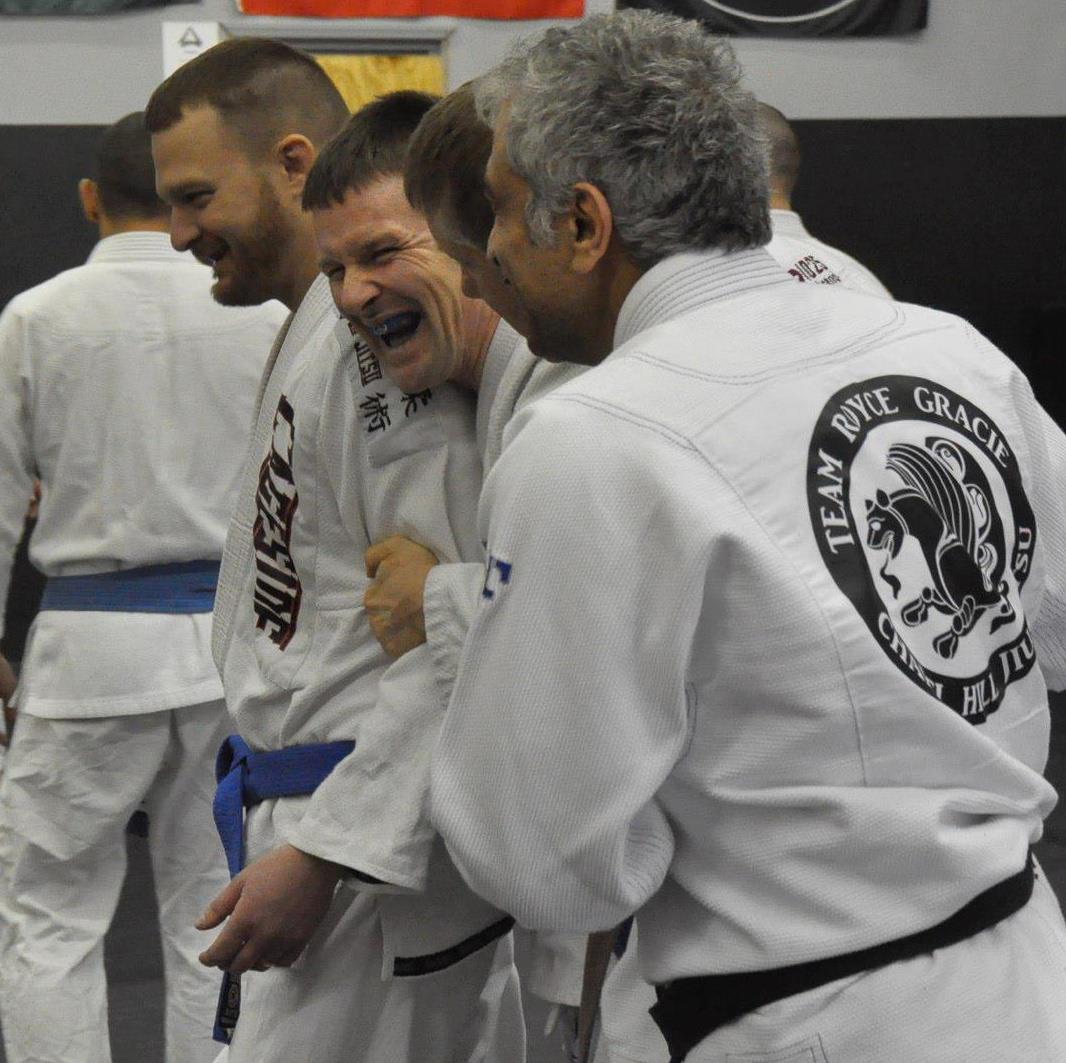
Creative work, remixes and ripoffs
Once, in 1997, I was in a bar with my drunk friend. Even while sober, my friend was kind of a holier-than-thou hater. After the whiskey started to flow, well, you can guess.
“Tubthumping” came on. You remember: “I get knocked down / and I get up again.” I still have a good deal of fondness for this song, and for Chumbawumba generally, so it was clear I was enjoying myself. True to hater form, my friend couldn’t have that. So during the breakdown, where they quote lyrics from the old Irish traditional “Oh, Danny Boy,” my friend started to rant.
“They’re ripping off Irish music!” his spittle-flecked hipster screed began. I rolled my eyes and ordered another beer.
It was, of course, a meritless criticism. This was a remix of a classic in the public domain, a reinvention of the familiar into something new and different. Even if it was a pure “quote,” jazz musicians have been inserting bits of classic compositions during performances forever. (Besides, as I should have pointed out: Johnny Cash also covered “Oh, Danny Boy.” Hipsters love Johnny Cash almost as much as they hate being called hipsters).
Which brings me to the real topic of the day: creative work in general lends itself well to what might be called remixing. Collage artwork draws on existing visual work. Mash-ups pull audio into new combinations. Andy Warhol certainly didn’t create the Campbell’s Soup logo when he drew on the can for pop art. Even parody of pop culture phenomena might be considered a remix of a sort.
It’s parody of pop culture that I want to talk about today, and creative work.
There is nothing new under the sun. That dope idea I had last week? Some ancient Greek already did it better. That genius concept I based an entire freelance project on? Some dude in Cleveland or Chicago or Constantinople might already be working on it.
This is especially true when you’re talking about making pop culture references. You’re not the only person who has seen Deadwood, or Doctor Who, or Daredevil. It’s a big world out there, and there are more clever people doing creative work faster than ever before.
Sometimes I see people angry when they see a meme that’s a lot like the meme they made. Worse, I see fans of brands — or brand owners, or brand staff — leap to the conclusion that a similar design done elsewhere is a result of someone directly copying them.
Rip-offs absolutely happen, of course. I’ve had my designs taken by random people on Teespring and sites like that. If you look, you’ll see the repeat offenders are out there. That’s sad and gross, but those people will make themselves known soon enough.
Generally speaking, though, I think it’s more productive to make generous assumptions about people, particularly creative types. Remixes happen when we are more free with access to ideas, and remixes and collaborations can be mindblowingly cool. I hate to see potentially productive creative relationships poisoned by hasty assumptions.
Simply put, if you think your style got bitten, it’s the best practice to just assume you drank from the same well as the other guy — and hope that it wasn’t the well my hater hipster friend drank from in 1997.
